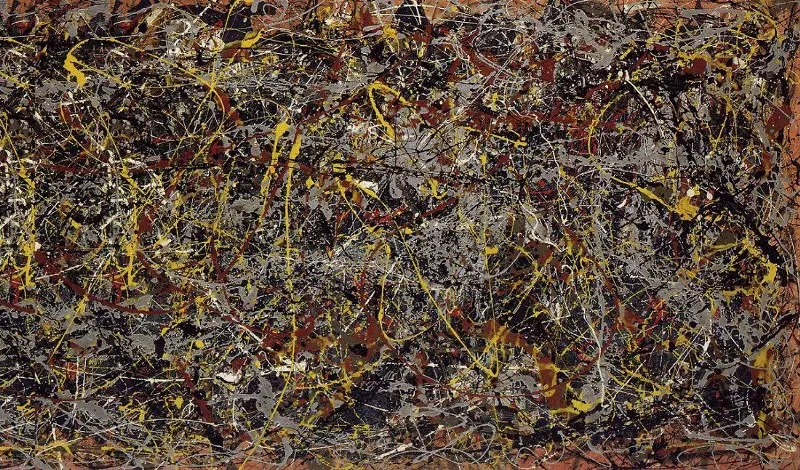Don’t Tell Me What I Should Like
(or: How I Learned to Stop Listening to Philosophers)

Recently, I found myself contemplating how philosophy relates to culture (I’m super fun at parties), and I came to the idea that I think there’s something seriously wrong with the current classification of the field of aesthetics. I had just spoken with a behavioral ecologist about the heritability of personality traits in insects and spiders, and of course that made me start to wonder why the hell aesthetics is considered a subfield of philosophy in the first place. Obviously.
Traditionally, the main branches of philosophy include: metaphysics, epistemology, ethics, aesthetics, politics, and logic. Although there is some disagreement about how these are organized, these branches have been around for centuries. But the more I thought about aesthetics, the more I became convinced that properly studying and deciphering aesthetic sensibilities requires not only an understanding of philosophy, but also a firm grasp of human psychology.
Isn’t it a bit arrogant for philosophers to assume that aesthetic tastes are something they can make objective and universal claims about without any scientific knowledge whatsoever of how the brain functions or how personality works? Wouldn’t such a feat require an intimate familiarity with human psychology, including an understanding of personality from both a biological and environmental perspective? On the one hand, I’m neither a psychologist nor a philosopher. On the other hand, I’m pretty sure I do less cocaine than Sigmund Freud, and I’m damn sure that I’m less neurotic than Immanuel Kant, who was absolutely terrified of sweating and so concerned about his socks staying up that he developed an apparatus involving springs and strings that connected his socks to the pockets of his pants. So there’s that.
Here’s my proposal: perhaps aesthetics should be moved out of the realm of purely philosophic pursuits altogether, because philosophers aren’t equipped with the necessary tools to produce any useful theories in the field. The assumption that the study of aesthetics falls neatly under the purview of philosophers was one of Ayn Rand’s mistakes, and one for which she is severely and effectively mocked decades after her death. She failed because she was completely ignorant of psychology, but proceeded to theorize about aesthetics anyway. And she knew this. Nathaniel Branden (psychologist and one-time partner of Rand) once revealed to me that Rand “admitted [to him] that she knew nothing about psychology.” Since at the time I was too loyal of a Rand disciple, I began to shift uncomfortably in my chair at his assertion. “You ought to believe her,” he added, staring me down. The old man was right. I should have.
Rand subscribed to the false belief that humans were born “tabula rasa,” or as psychological “blank slates.” In the field of evolutionary biology, this belief is referred to as “environmental essentialism,” or the idea that genetics plays no part in determining one’s personality. As we now know, this idea is patently false. Even insects and spiders inherit personality traits from their genetics. In fact according to the behavioral ecologist I mentioned above, Dr. Colin Wright, evolutionary pressures effect behavioral traits much more rapidly and more often than physical traits. It seems that transmitting behavioral changes in the form of personality traits is one of DNA’s most efficient survival strategies. This makes a lot of sense, Dr. Wright explained, if for example you think about how difficult it would be to evolve a new behavior to seek shelter as opposed to, say, evolving a hard shell.
Even worse than that, Rand might be better described as something like a “philosophical essentialist” with respect to personality. She assumed that one’s aesthetic inclinations were largely determined by the philosophic premises one holds, either consciously or through unconsciously chosen value judgments. Further, because she viewed herself as embodying a rational, integrated moral code (Objectivism), she assumed that her aesthetic preferences were the “correct” ones. This left little room for people who shared fundamental philosophic and moral principles but differed in terms of artistic taste. Renowned economist Murray Rothbard even wrote a short play about his experience in Rand’s inner circle, titled, “Mozart Was a Red,” which exaggeratedly depicts the disastrous (and comical) outcome of Rand’s belief in this regard. To Rand, disagreement about aesthetics was seen as evidence of a moral or philosophical flaw — a misintegration or disintegration — which must be condemned and corrected. There’s even a joke among Objectivists that every rational person should like Rachmaninoff and hate Mozart. If a person doesn’t, then his or her aesthetic preferences somehow betray a philosophic or moral flaw. Except that no one takes such moral judgments seriously because deep down we all know the whole theory is nonsense.
In reality, human psychology (which includes one’s aesthetic judgment) is very poorly understood. The brain itself is poorly understood. What we do know is that what shapes a personality is multivariate and includes not only one’s moral beliefs, but also environmental and hereditary factors. What art, music, and food that you like is not simply a function of how and what you think philosophically and morally, but also of the environment in which you were raised, traumas you endured, rewards you enjoyed, people you met, food you consumed as a child, and even your genes. Who you are is much more than a simple measurement of your fidelity to a set of philosophic principles. And that’s a good thing, because it means that bad philosophy isn’t a requirement for a universe of truly diverse and varied art. A world full of rational people still includes a cornucopia of cultural subgroups, each with their own preferences for food, music, literature, and all of the other arts.

I’m not picking on Ayn Rand here for any particular reason other than that I understand her perspective better than I understand the perspective of other philosophers. The problem isn’t with her philosophy so much as it is with philosophy in general. No one who doesn’t thoroughly understand human psychology (i.e. no one) should be running around telling the rest of us what kind of music we should and shouldn’t like. Should aesthetics be moved out from under philosophy and made into its own discipline that requires not only a foundation in philosophic principles, but also a scientifically rigorous comprehension of the mechanics of human psychology? I don’t know, but after several centuries of listening to the useless pontifications of ignorant philosophers we’re left with Jackson Pollock accidents that sell for $140M, so I thought perhaps someone should ask the question.
